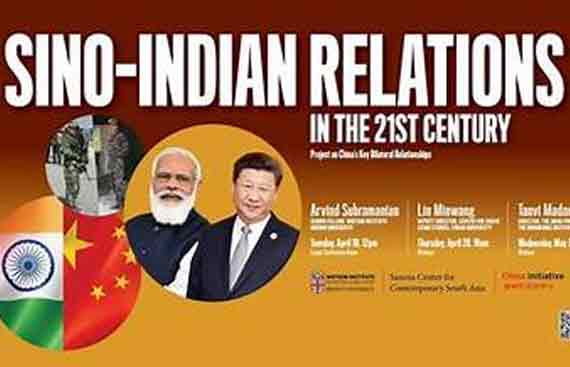The Multifaceted US-India Relationship in the 21st Century

US-India ties, based on shared values and history, have grown into a diverse partnership encompassing defense, trade, and climate efforts, crucial for addressing global challenges.
The US-India relationship, hailed by President Biden as the defining partnership of the 21st century, has undergone significant evolution over its 77-year history, characterized by periods of closeness and distance. Rooted in shared values and mutual inspiration among philosophers, writers, and social justice advocates like Dewey, Ambedkar, Emerson, Thoreau, Tagore, and Gandhi, the relationship has weathered shifts in geopolitical dynamics.
Historical connections, such as Gandhi’s admiration for Thoreau’s writings and Dr. Martin Luther King Jr.'s inspiration by Gandhi, underscore the enduring cultural and intellectual ties between the two nations. Despite a period of estrangement following India's independence, subsequent administrations, including those of Truman, Eisenhower, and Kennedy, recognized India's strategic importance and sought to cultivate a robust partnership.
The thaw in relations began with President Clinton's visit in 2000, marking the onset of a comprehensive partnership that has since flourished across various domains. Over the past 24 years, bilateral cooperation has expanded exponentially, encompassing defense, trade, climate action, and people-to-people ties.
Defense collaboration has transitioned from negligible levels to a robust partnership, encompassing defense sales, co-production agreements, and joint military exercises. Bilateral trade has surged from $20 billion in 2000 to over $200 billion, reflecting the deepening economic engagement between the two countries.
Joint efforts to address global challenges, such as the climate crisis, have been exemplified by initiatives like the U.S.-India Climate and Clean Energy Agenda 2030 Partnership. Recent discussions at COP28 underscore the commitment to advancing sustainable solutions, including electrifying public transport and promoting low-carbon initiatives.
People-to-people ties have flourished, with over four million Americans of Indian descent and nearly 270,000 Indian students studying in the United States. This exchange of talent and expertise enriches both societies and fosters greater understanding and cooperation.
Given the evolving threats in the Indo-Pacific region and beyond, security cooperation remains paramount. Strengthening collective capabilities, enhancing information sharing, and bolstering maritime domain awareness ensure India's role as a regional net security provider.
Safeguarding democracy and upholding a rules-based international order is imperative amid the rise of autocratic regimes and disinformation campaigns. Collaborative efforts to bridge income inequality and combat misinformation are essential to sustaining democratic values and delivering for the people.
Exploring new and emerging technologies holds promise for economic growth and innovation but poses cybersecurity challenges. Close collaboration on cybersecurity, data privacy, and internet infrastructure is crucial to mitigate risks and ensure global stability.
President Biden and Prime Minister Modi have emphasized the significance of the U.S.-India partnership in addressing global issues, from food insecurity to pandemics to digital inclusion. By leveraging their collective strengths, the two nations make meaningful contributions to international development and security.
The U.S.-India relationship, rooted in shared values and historical ties, has evolved into a multifaceted partnership spanning defense, trade, climate action, and beyond. As both countries navigate the challenges of the 21st century, collaboration and mutual support are essential to addressing global challenges and advancing shared interests.
